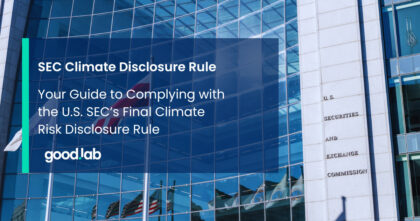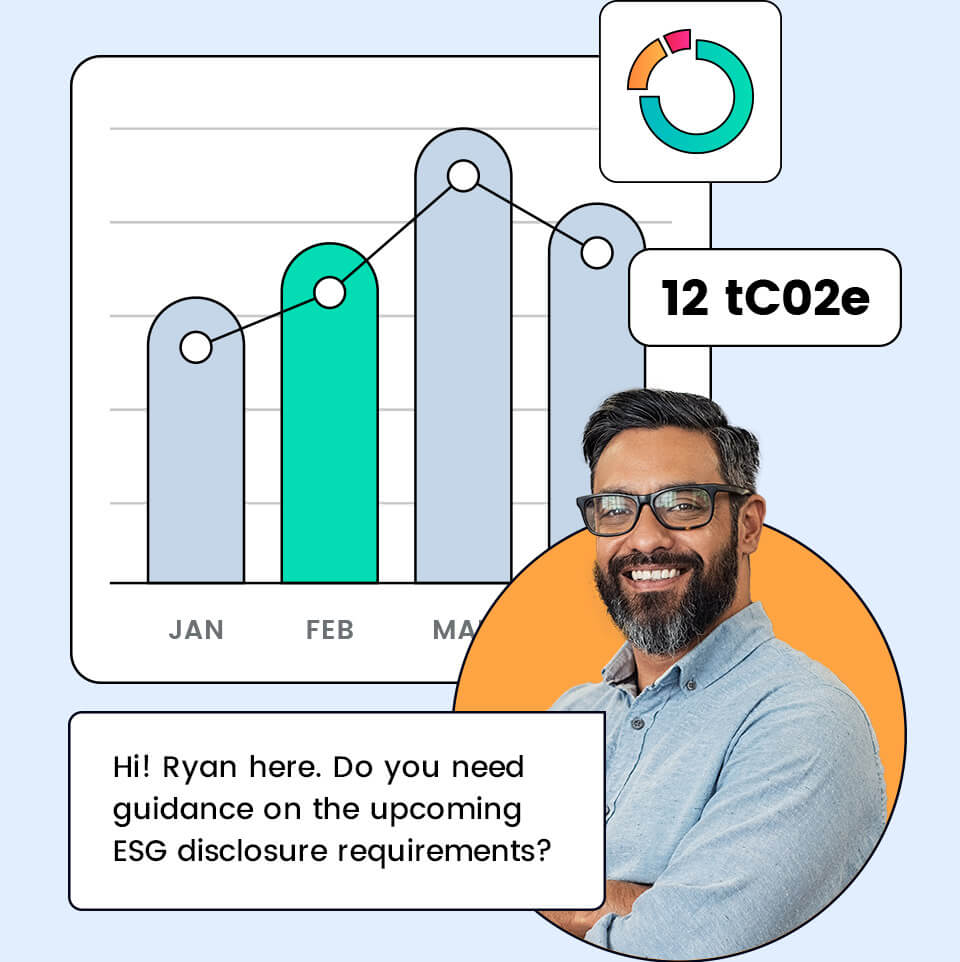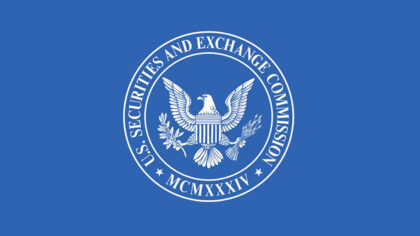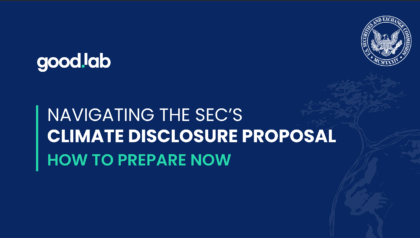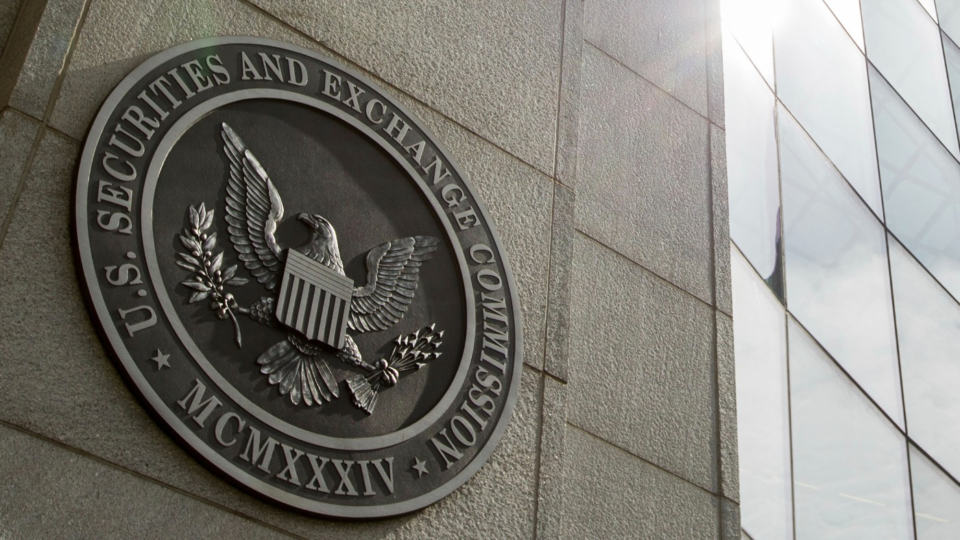Other ESG Frameworks & Climate Regulations
ESG, climate, and sustainability disclosure regulations and standards, both mandatory and voluntary, continue to build momentum in the U.S. and abroad. There is a clear trend toward enhanced disclosure of climate-related risks and GHG emissions data for companies of all sizes, public and private, mid-market and Fortune 500.
Beyond SEC climate disclosure compliance, Good.Lab can also help you create an effective sustainability and ESG data reporting strategy with coverage for the following disclosures and reporting requirements:
- SEC
- TCFD
- ISSB
- CSRD
- CSDDD
- GRI
- TNFD
- CDP
- SASB
- EcoVadis
- HIGG
- CA Climate Act
- B Corp
Key Takeaways from the Final SEC Climate Rule
- What emissions reporting is required:
The final SEC climate rule includes disclosure requirements of material climate-related risks and Scope 1 and 2 emissions for large filers. It does not ask for Scope 3 emission reporting.
- What will be the impact of the SEC’s rule:
Between California, EU, and SEC climate disclosure rules, the vast majority of enterprise companies will need to develop or enhance a climate risk and reporting strategy. This will require significant investment in building or expanding climate policies, processes, and systems.
We expect that many public companies will measure Scope 3 GHG emissions for compliance (CA and CSRD) or commercial reasons (supply chain pressure), even if they have no public reporting obligation from the SEC.
The rule still requires companies to assess material value chain climate-related risks. Therefore, we expect that supply chain climate data request pressures will continue to accelerate.
- What types of companies will be affected:
Most US public companies on a US stock exchange will be affected. Although private companies are not bound directly by SEC reporting rules, the trend toward enhanced climate reporting will still affect them. Managing climate-related risks is becoming best practice. Companies of all sizes recognize the financial risks posed by climate-related risks and are moving towards measuring and managing them.
- How was the SEC Climate Rule received:
Upon its initial proposal two years ago, the rule sparked widespread media interest, receiving an unprecedented 24,000 letters of feedback (the highest in SEC history).
Last Wednesday’s vote to finalize the rule fueled the media attention further, highlighting the significant shift towards mainstream corporate climate and sustainability initiatives in recent years.
As the world becomes more conscious of the impact of climate change on businesses, it is important to have a comprehensive overview of climate-related risks and relevant disclosures. That’s where the U.S. Securities and Exchange Commission (SEC) comes in. This finalized climate rule will require thousands of companies to report on the climate risks that are material to their business operations and financial statements, disclose governance and oversight measures, GHG emissions for Scope 1 and 2, and details of any climate targets and goals.
If your company is looking to understand the SEC’s standardization of climate-risk disclosures, there are tools and resources available to you. These resources can help you navigate the SEC reporting requirements related to climate risk and ensure that your company is compliant with these regulations. By using these resources, you can make sure that your company is prepared to disclose material climate-related risks and Scope 1 and 2 emissions.
Overall, the SEC’s Climate Disclosures are an important step forward in addressing climate change in the business world. By providing guidance on climate risk and disclosure requirements, companies can better understand the impact of their operations on the environment and take steps to reduce their carbon footprint. With the help of Good.Lab’s resources and tools businesses can stay up-to-date with the latest reporting requirements and ensure that they are meeting their obligations under SEC regulations.
